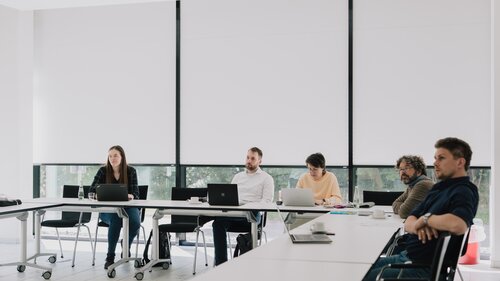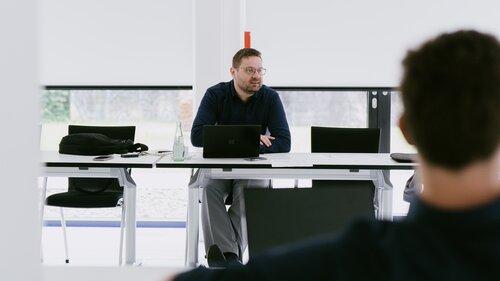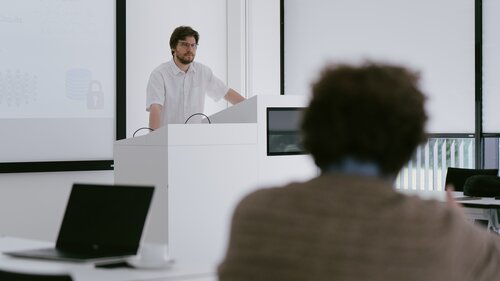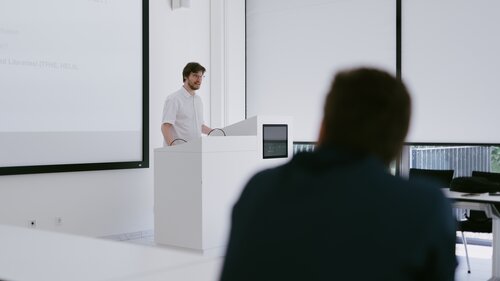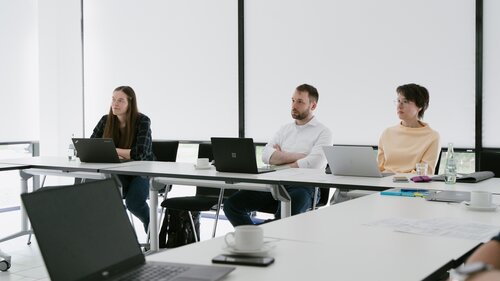"Encrypted-Computing-Compass" project celebrates first milestone
"Encrypted-Computing-Compass" project celebrates first milestone
In December, the still young Cyberagentur confidently placed its first tendered project in the hands of CISPA faculty member Dr. Nico Döttling and Prof. Dr. Jörn Müller-Quade from the Karlsruhe Institute of Technology (KIT). Both researchers are experts in the field of Encrypted Computing, which is considered to be the trend-setting technology of data security. Encrypted computing is a method of analyzing data without first decrypting it. Sensitive and security-critical information can thus remain secret and still be processed. "The fact that something like encrypted computing exists at all is a minor miracle," says Müller-Quade. "Normally, encrypted data is locked away like in a safe. Amazingly, you can still compute on them without knowing what you're computing on." If the study shows that the methods can be used efficiently and are competitive, the cyber agency wants them to flow into internal and external security applications in the future.
In addition to Nico Döttling and Jörn Müller-Quade, CISPA researchers Dr. Kamil Kluczniak, Jesko Dujmovic, and Anne Müller as well as Michael John, head of the cryptography unit at the cyber agency, project manager Tanja Zeeb and Dr. Martin Rehberg discussed the progress of the project so far and the next steps. "In this study, we are developing initial starting points for the future use of the techniques and want to give decision-makers a realistic picture of what is technically and scientifically feasible," explains Döttling. Müller-Quade adds that the methods are still too slow for real-world applications. "We hope that the project will change that in a few years." Specific topics discussed at the workshop included the advantages and disadvantages of so-called fully homomorphic encryption, which is considered a particularly promising concept in the field of encrypted computing, as well as its implementation options to date.
In the afternoon, Dr. Christian Hummert, Research Director of the Cyberagentur, and CISPA Founding Director and CEO Prof. Dr. Dr. h. c. Michael Backes also met to exchange views on the cooperation between their institutions. Hummert expressed his satisfaction with the project's progress so far: "Encrypted computing will be one of the key technologies for cyber security in Germany. I am very pleased that this important project is being handled so professionally by CISPA and KIT."
The feasibility study is just the start of the cyber agency's research activities in encrypted computing. In the second half of 2022, a program with a funding volume of around eight million euros is to be publicly announced.
About the Cyberagentur
The Agentur für Innovation in der Cybersicherheit GmbH (Agency for Innovation in Cybersecurity LLC) is tasked with commissioning disruptive research projects in cybersecurity and related key technologies. It thus funds research with a horizon of ten to 15 years that is strategically important for Germany's internal and external security. The agency was established as an in-house federal company under the joint leadership of the Federal Ministry of Defense and the Federal Ministry of the Interior and Homeland by the German government. It is commissioned with projects that are highly innovative but at the same time involve a high risk concerning the achievement of objectives.
